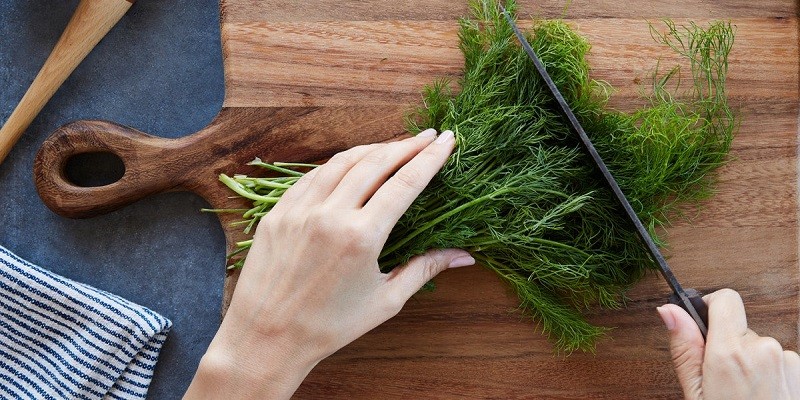Yes, you can eat dill while pregnant, but it should be consumed in moderation. Excessive consumption of dill, especially in concentrated forms like dill oil, can pose risks such as skin irritation and increased chances of miscarriage.
Dill is a popular herb known for its distinctive flavor and numerous health benefits. It is commonly used in culinary dishes and has medicinal properties. However, pregnant women often question the safety of consuming dill during pregnancy. This article explores whether it is safe to eat dill while pregnant, its nutritional value, potential risks, and safe consumption methods.
What is Dill?
Dill, scientifically known as Anethum graveolens, is a perennial herb belonging to the Apiaceae family. It is widely used in European and Asian cuisines for its tangy, appetizing taste and flavor. Dill is rich in flavonoids, amino acids, minerals, and monoterpenes, which contribute to its health benefits. It is commonly used as a seasoning, flavoring, or pickling agent.
Nutritional Value of Dill
| Nutritional Value | Details |
|---|---|
| Calories | 4 per cup (9 grams) |
| Vitamin C | 8% of the Daily Value (DV) |
| Vitamin A | 4% of the DV |
| Manganese | 5% of the DV |
| Folate | 3% of the DV |
| Calcium | 1-2% of the DV |
| Iron | 3% of the DV |
Risks of Eating Dill During Pregnancy
| Risks | Details |
|---|---|
| Skin Irritation | Overconsumption can cause skin irritation and sensitivity to sunlight. |
| Miscarriage | Excessive intake, especially of dill oil, can promote menstruation and increase the risk of miscarriage. |
| Allergic Reactions | Some individuals may experience allergic reactions such as vomiting, diarrhea, and throat swelling. |
Safe Ways to Eat Dill During Pregnancy
To safely incorporate dill into your pregnancy diet, use it in small quantities as a seasoning in cooked dishes like soups, stews, and salads. Avoid consuming concentrated forms like dill oil or supplements. Always wash dill thoroughly before use to minimize the risk of bacterial contamination.
Alternatives to Dill During Pregnancy
| Alternatives | Precautions |
|---|---|
| Basil | Ensure it is fresh and washed thoroughly. |
| Parsley | Consume in moderation to avoid excessive intake of oxalates. |
| Mint | Use fresh leaves and avoid concentrated mint oils. |
| Thyme | Use as a seasoning in cooked dishes. |
| Rosemary | Avoid large quantities as it can stimulate menstruation. |
Experts Tips
- Moderation is Key: “Use dill in small amounts to avoid potential risks”.
- Consult Healthcare Provider: “Always consult your healthcare provider before making dietary changes”.
- Avoid Concentrated Forms: “Avoid dill oil and supplements during pregnancy”.
FAQs
Is it safe to eat dill pickles during pregnancy?
Yes, dill pickles are generally safe to eat during pregnancy in moderation. They provide a good source of vitamins but should be consumed in limited quantities due to their high sodium content.
Can dill cause miscarriage?
There is limited evidence linking dill to miscarriage, but excessive consumption, especially of dill oil, can promote menstruation and pose risks. It is best to consume dill in moderation.
How much dill is safe to consume during pregnancy?
There is no specific limit, but it is recommended to use dill in small quantities as a seasoning. Avoid consuming large amounts or concentrated forms like dill oil.
Can dill help with pregnancy nausea?
Dill may have a soothing effect on the digestive system and help reduce nausea. However, it should be used in moderation and not as a primary treatment for nausea.
Are there any alternatives to dill for flavoring food during pregnancy?
Yes, alternatives like basil, parsley, mint, thyme, and rosemary can be used to flavor food during pregnancy. Ensure they are fresh and used in moderation.
Conclusion
Dill can be safely consumed during pregnancy when used in moderation as a culinary herb. It offers several health benefits, including improved digestion and enhanced flavor in dishes. However, excessive consumption, especially of concentrated forms like dill oil, can pose risks. Always consult your healthcare provider before making any significant dietary changes during pregnancy.
Last Updated on June 1, 2024 by Marjorie R. Rogers, MA (English), Certified Consultant

